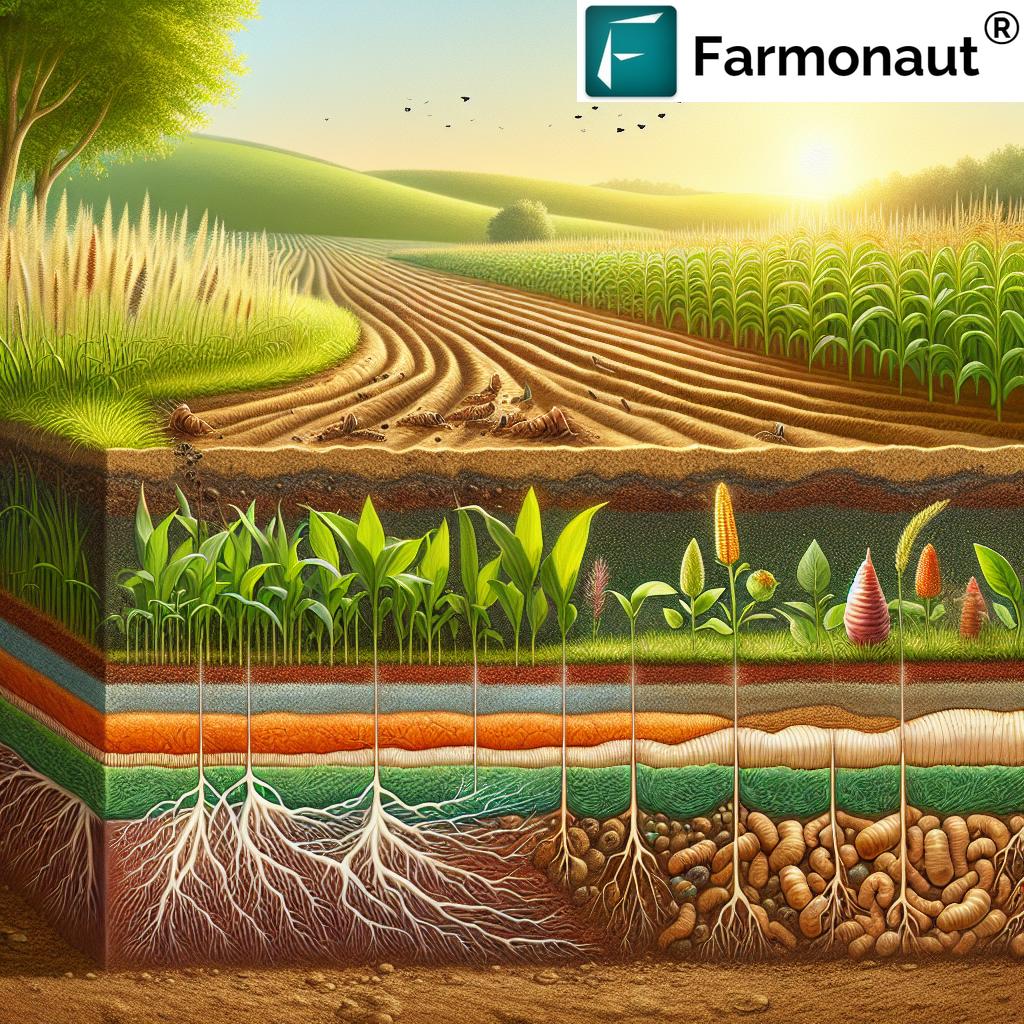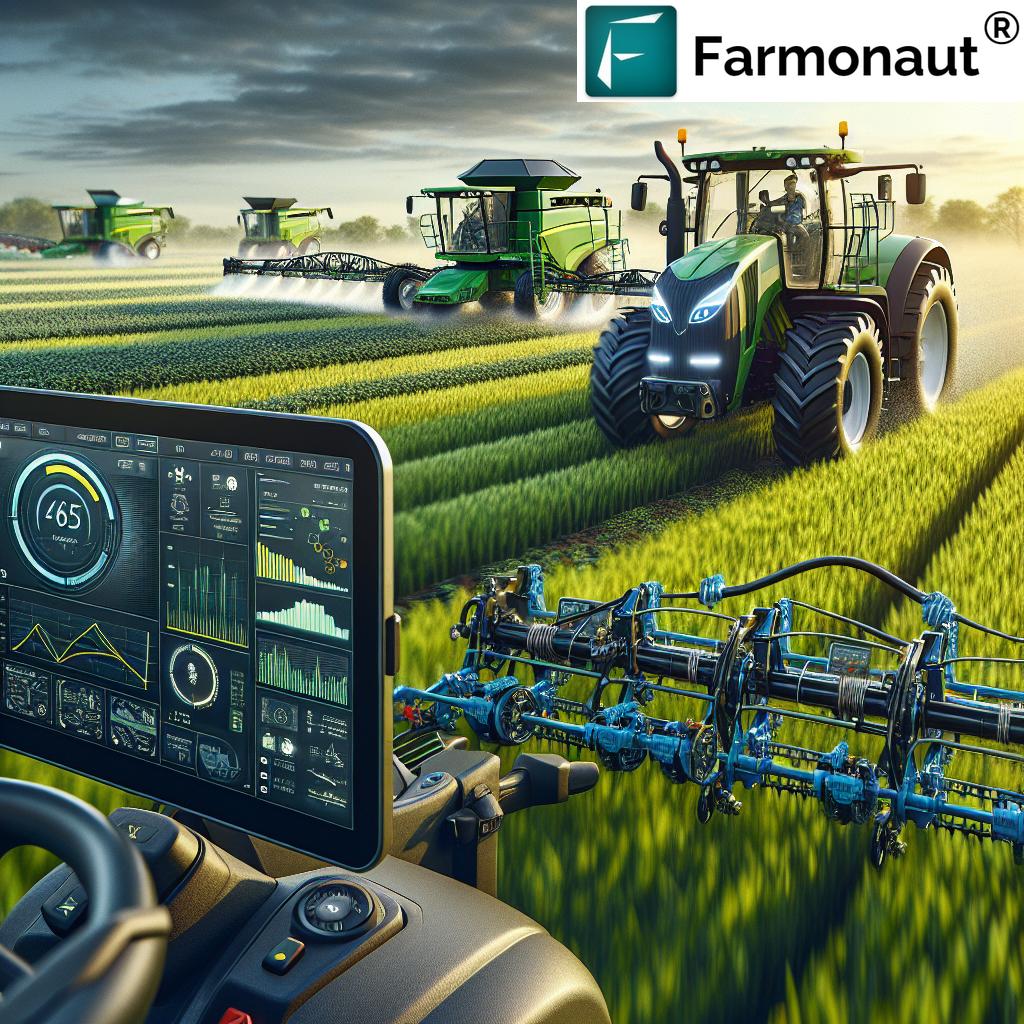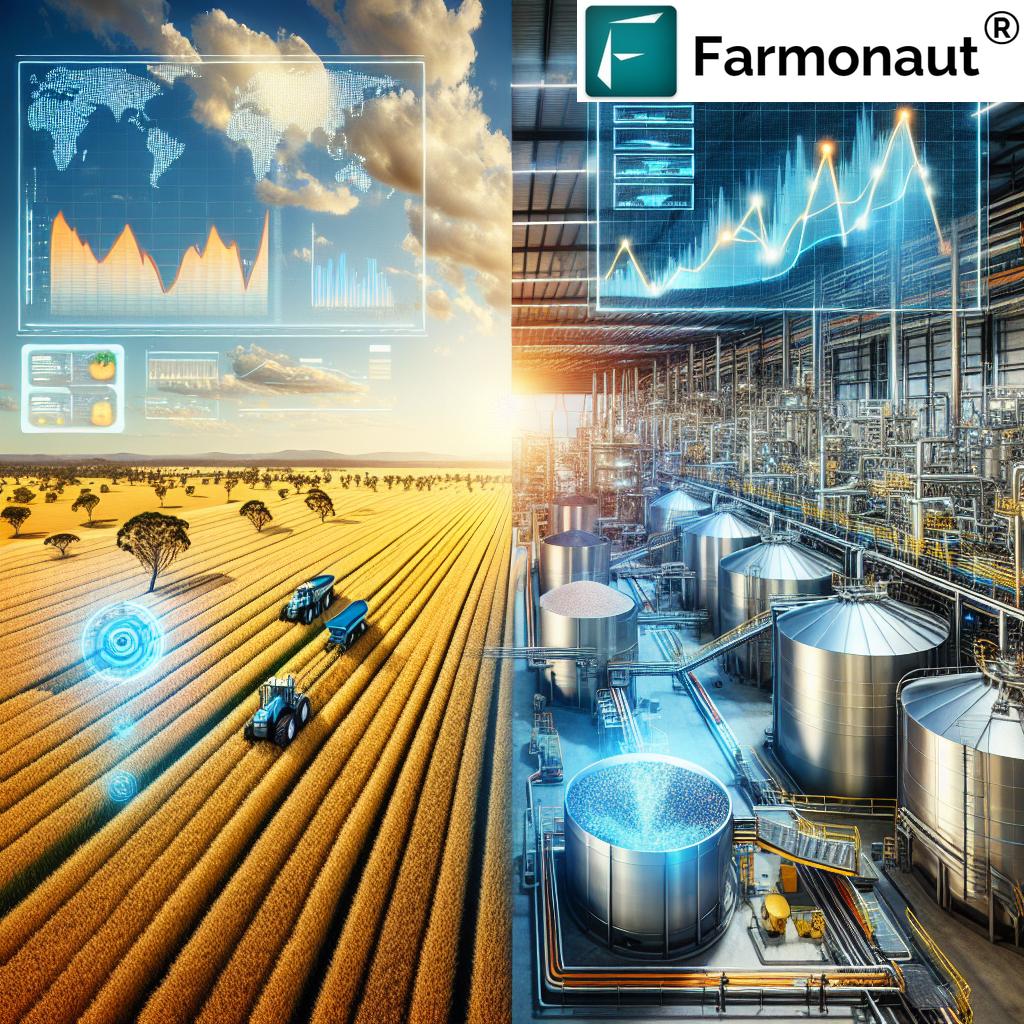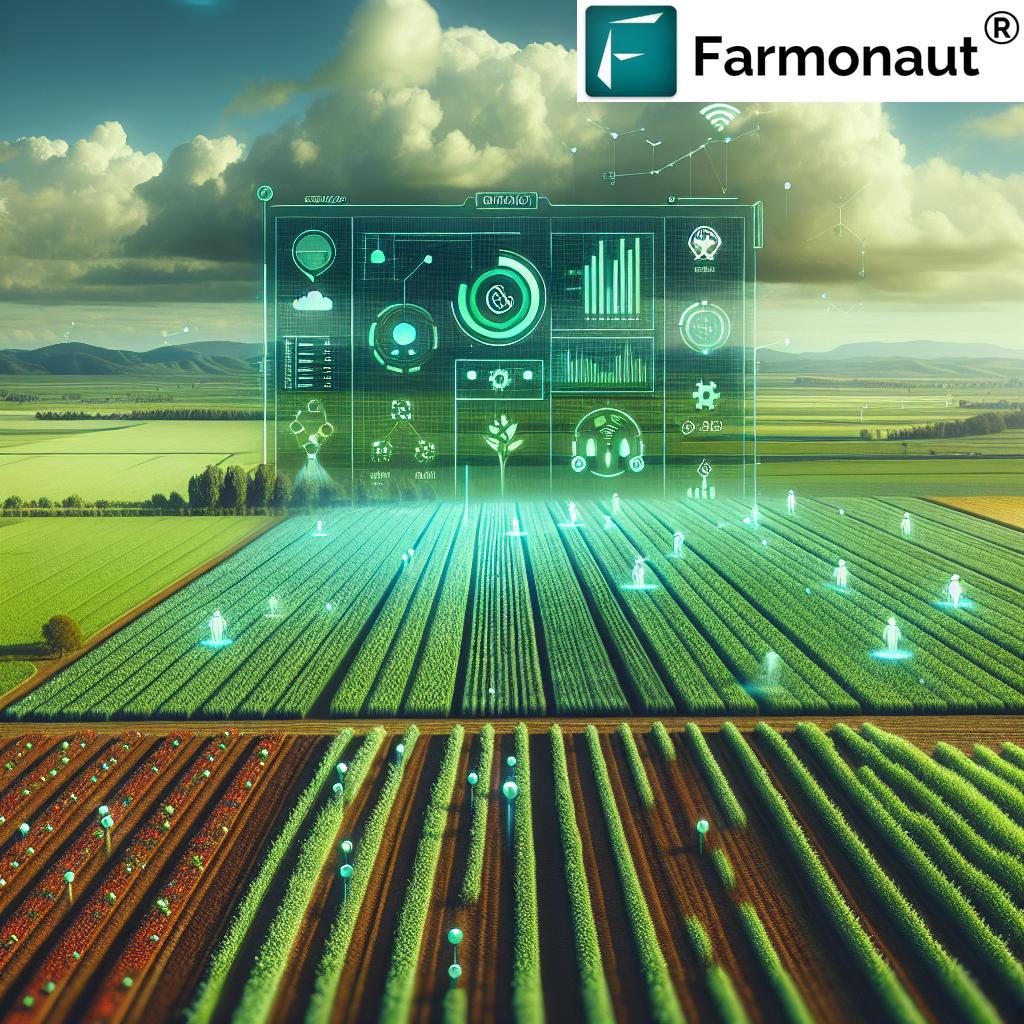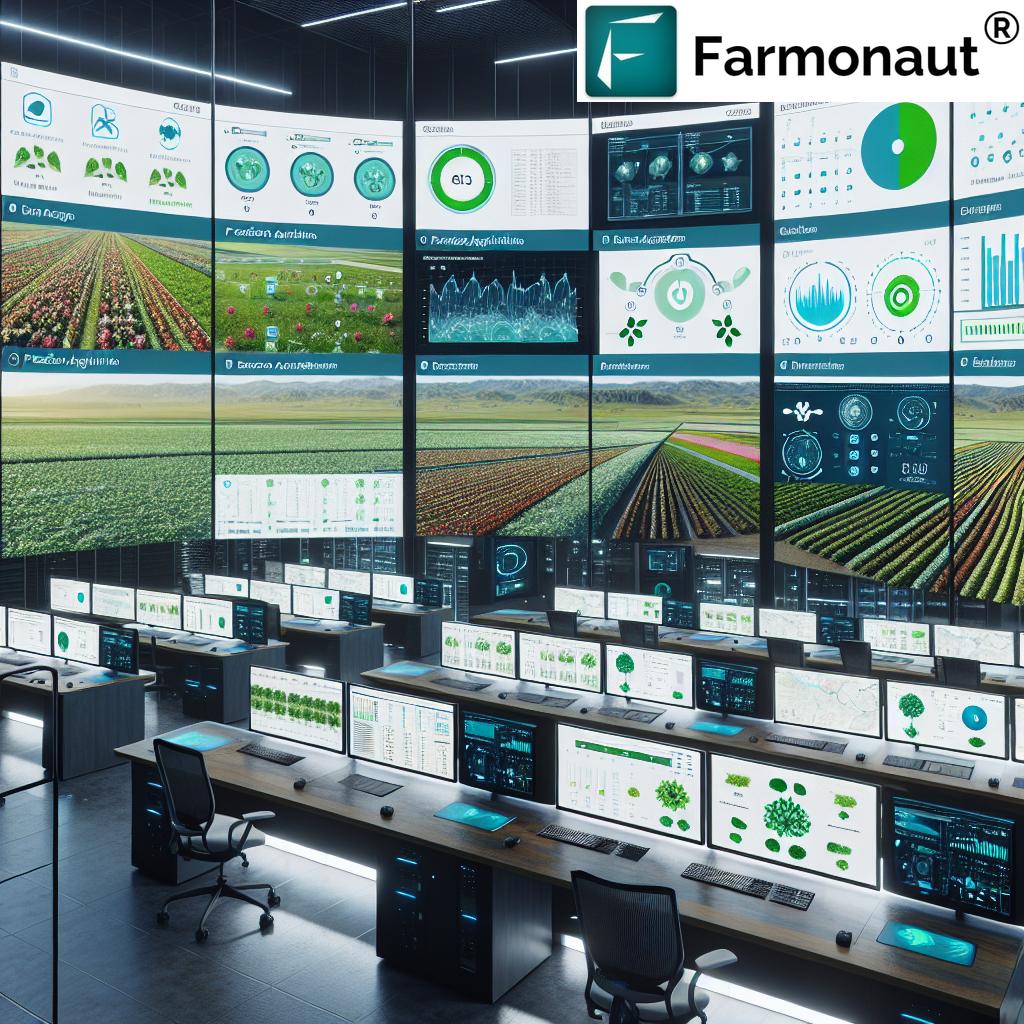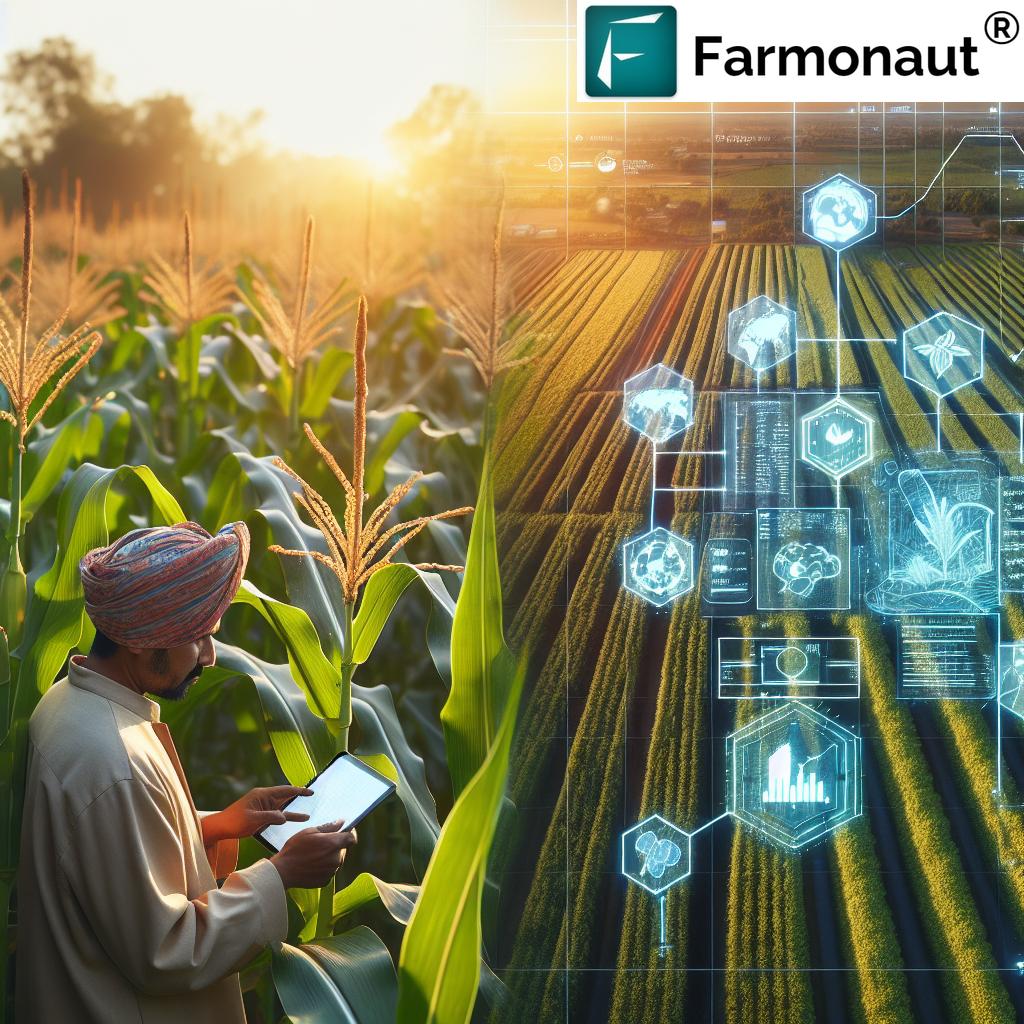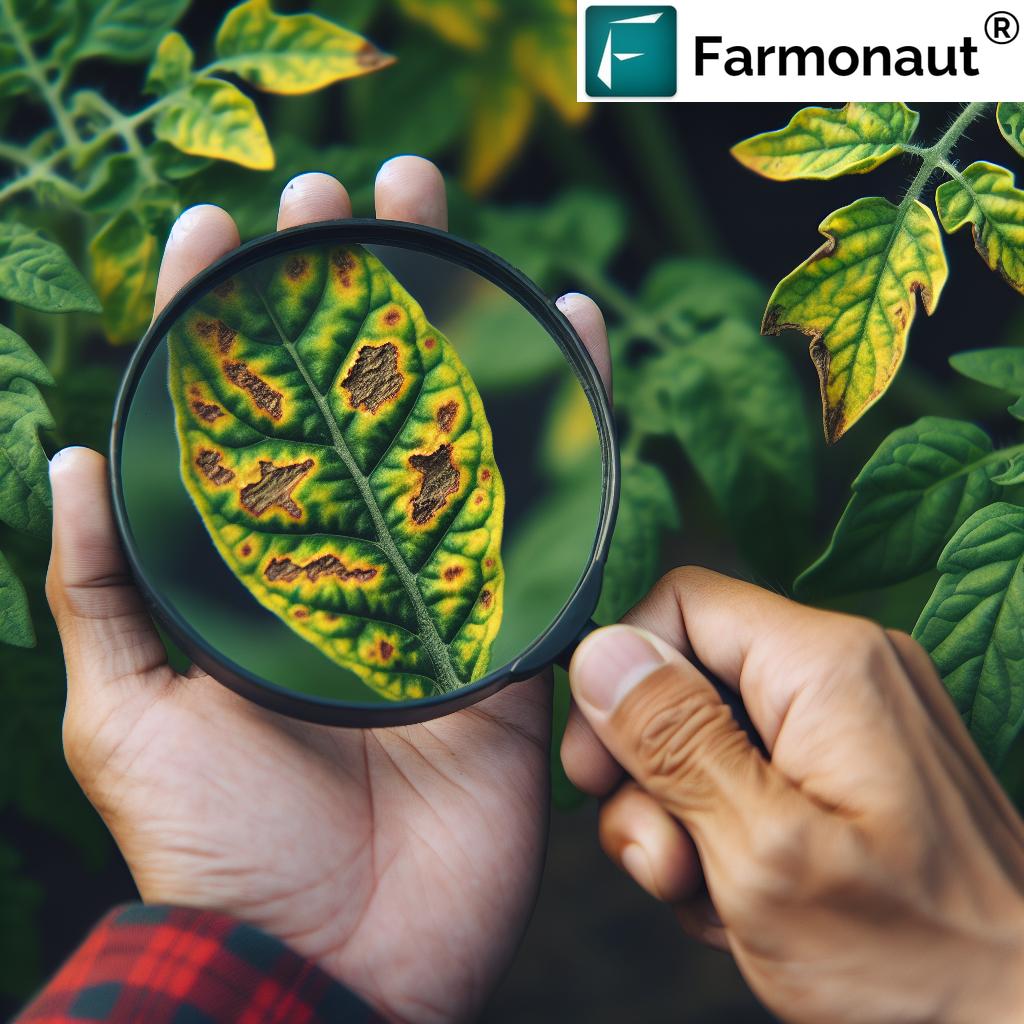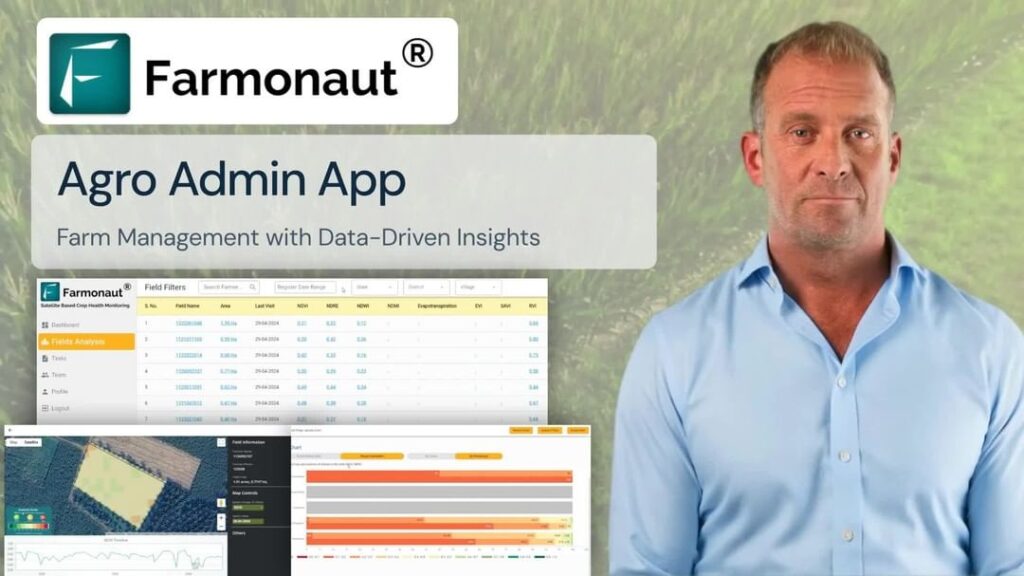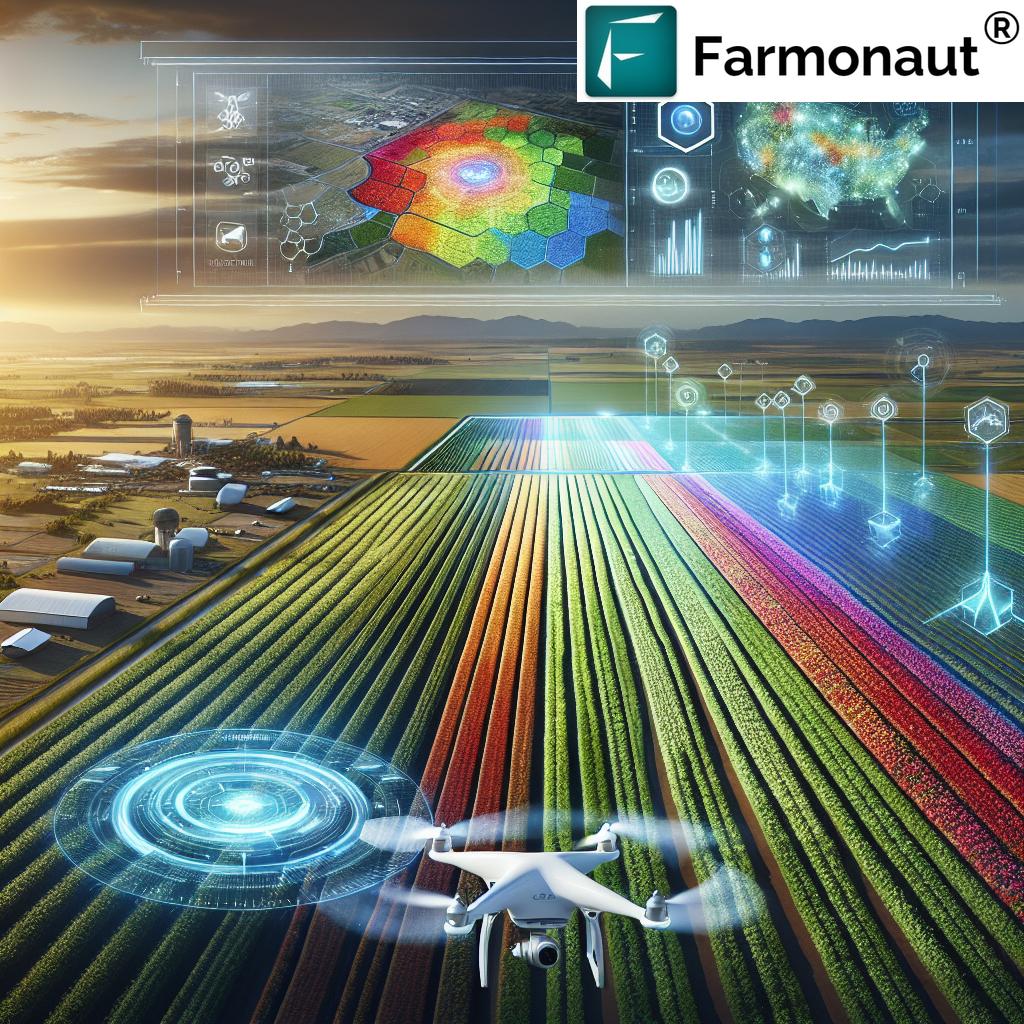Revolutionizing Agtech: How Precision Agriculture and Biotech Are Enhancing Crop Nutrition and Sustainability
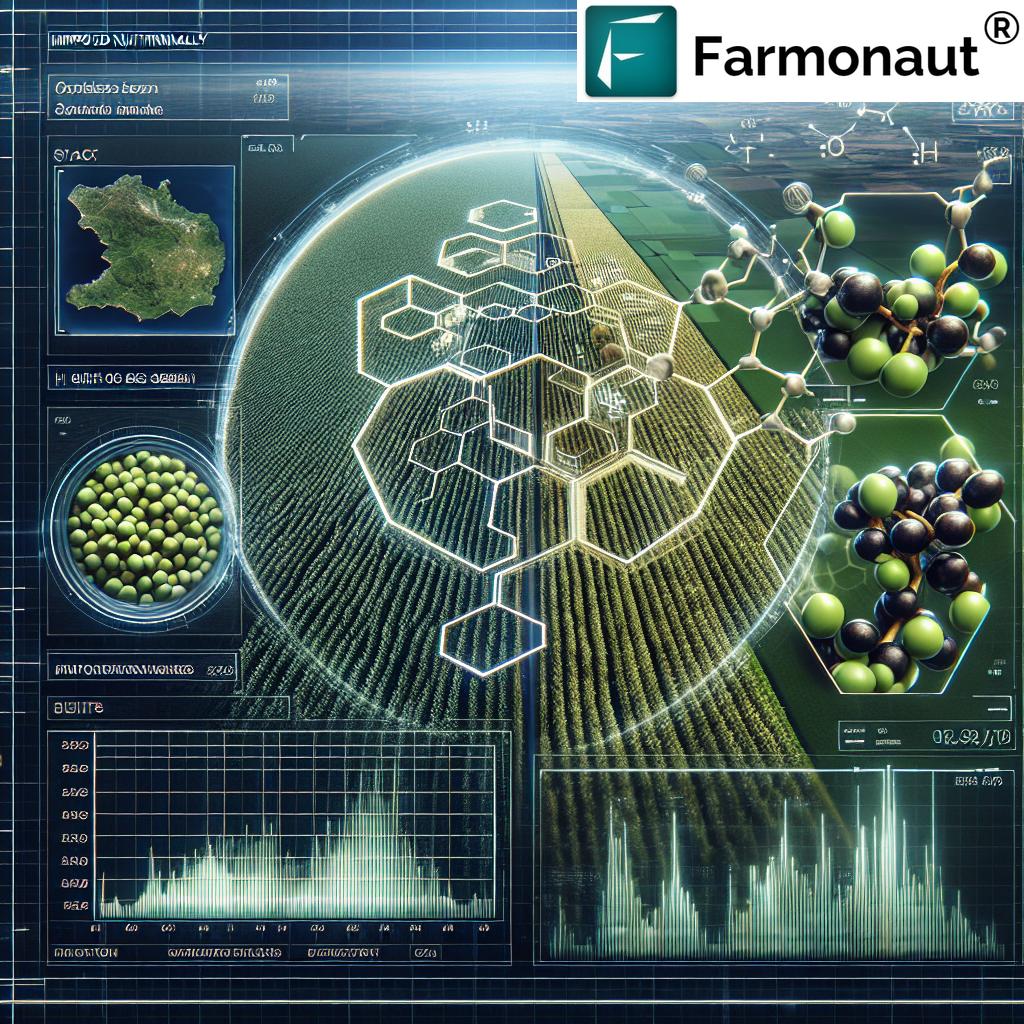
“Precision agriculture technologies have increased soybean yields by up to 20% while reducing water usage by 30%.”
In the ever-evolving landscape of agriculture and foodtech, we are witnessing a paradigm shift from quantity-driven approaches to quality-centric solutions. This transformation is not just reshaping how we grow our food, but also how we perceive and value nutrition in our daily lives. At the forefront of this revolution are precision agriculture technologies and computational biology, which are fundamentally changing crop cultivation techniques, particularly for essential plant-based protein sources like soybeans.
As we delve into this exciting realm of agtech innovation, we’ll explore how these advancements are not only enhancing crop nutrition but also promoting sustainability in agriculture. From the development of high-oleic soybean varieties to strategies for reducing food waste, we’ll uncover the multifaceted approach that’s addressing global challenges in food security and health.
In this comprehensive exploration, we’ll also highlight how companies like Farmonaut are playing a crucial role in this new era of agriculture. Through remote sensing and data analysis, Farmonaut is empowering farmers to optimize crop yields and quality, contributing significantly to the broader goals of sustainable agriculture and improved food nutritional value.
Join us as we embark on this journey through the future of agriculture, where innovation meets sustainability to create healthier, more nutritious food for our growing global population.
The Shift Towards Sustainable Agriculture Innovations
The agriculture industry is undergoing a remarkable transformation, driven by the urgent need for sustainable practices and the demand for higher quality produce. This shift is characterized by several key factors:
- Resource Efficiency: Sustainable agriculture innovations focus on maximizing output while minimizing input, particularly in terms of water usage and chemical applications.
- Environmental Conservation: New farming techniques aim to reduce the environmental impact of agriculture, preserving soil health and biodiversity.
- Nutritional Focus: There’s a growing emphasis on enhancing the nutritional profile of crops, moving beyond mere yield increases.
- Technological Integration: Advanced technologies like AI, IoT, and remote sensing are being integrated into farming practices for more precise and efficient cultivation.
These innovations are not just conceptual; they’re being implemented across the globe, from small farms in Asia and Africa to large agricultural operations in the Middle East and beyond. The goal is to create a more resilient and sustainable global food system that can meet the nutritional needs of a growing population while preserving our natural resources.
Precision Agriculture: A Game-Changer in Crop Cultivation
Precision agriculture technologies are at the heart of this agricultural revolution. These advanced tools and techniques allow farmers to make highly informed decisions about every aspect of crop cultivation, from seed selection to harvest timing. Here’s how precision agriculture is transforming the field:
- Satellite Imagery and Remote Sensing: These technologies provide real-time data on crop health, soil conditions, and environmental factors. Farmonaut’s satellite-based farm management solutions exemplify how this data can be leveraged to optimize farming practices.
- Variable Rate Technology (VRT): VRT allows for precise application of inputs like water, fertilizers, and pesticides based on the specific needs of different areas within a field.
- GPS-Guided Machinery: Ultra-precise GPS systems guide farm equipment, reducing overlap and improving efficiency in planting, spraying, and harvesting.
- Soil Sensors and Weather Stations: On-site sensors provide real-time data on soil moisture, temperature, and other critical factors, enabling more precise irrigation and crop management.
These precision agriculture technologies are particularly transformative for crops like soybeans, a crucial source of plant-based protein. By optimizing growing conditions and resource usage, farmers can significantly improve both the yield and nutritional quality of their soybean crops.
Biotech Breakthroughs: Enhancing Crop Nutrition
Alongside precision agriculture, biotechnology is playing a pivotal role in enhancing crop nutrition. Computational biology and genetic engineering are opening new frontiers in crop improvement, particularly in developing varieties with enhanced nutritional profiles. Let’s explore some key areas:
High-Oleic Soybean Varieties
One of the most exciting developments in soybean cultivation is the creation of high-oleic varieties. These soybeans are a product of both traditional breeding and biotechnology, offering significant nutritional benefits:
- Increased Heart-Healthy Fats: High-oleic soybeans contain a much higher percentage of monounsaturated fats, which are associated with improved heart health.
- Extended Shelf Life: The oil from these soybeans has greater stability, reducing the need for hydrogenation and thus lowering trans fat content in processed foods.
- Versatile Applications: From cooking oils to plant-based meat alternatives, high-oleic soybeans are finding diverse uses in the food industry.
“High-oleic soybean varieties can contain up to 80% heart-healthy monounsaturated fats, compared to 23% in conventional soybeans.”
Biofortification of Crops
Biofortification is another area where biotech is making significant strides. This process involves enhancing the nutritional content of crops through breeding or genetic modification. Some notable achievements include:
- Golden Rice: Engineered to contain beta-carotene, addressing Vitamin A deficiency in developing countries.
- Iron-Fortified Beans: Developed to combat iron deficiency, a common nutritional issue in many parts of the world.
- Zinc-Enriched Wheat: Aimed at improving zinc intake, crucial for immune function and growth.
These biotech innovations are not just improving the nutritional quality of crops; they’re also addressing global health challenges related to malnutrition and micronutrient deficiencies.
Sustainable Agriculture: Balancing Productivity and Environmental Conservation
As we push for higher crop yields and enhanced nutrition, it’s crucial to maintain a focus on environmental sustainability. Sustainable agriculture innovations are key to achieving this balance:
- Conservation Tillage: Minimizing soil disturbance to preserve soil structure and reduce erosion.
- Crop Rotation and Intercropping: Improving soil health and reducing pest pressure naturally.
- Precision Irrigation: Utilizing technologies like drip irrigation and soil moisture sensors to optimize water use.
- Integrated Pest Management (IPM): Combining biological, cultural, and chemical methods to manage pests while minimizing environmental impact.
These practices not only conserve resources but also contribute to the long-term health of agricultural ecosystems. By adopting these methods, farmers can ensure sustainable production of nutritious crops for years to come.
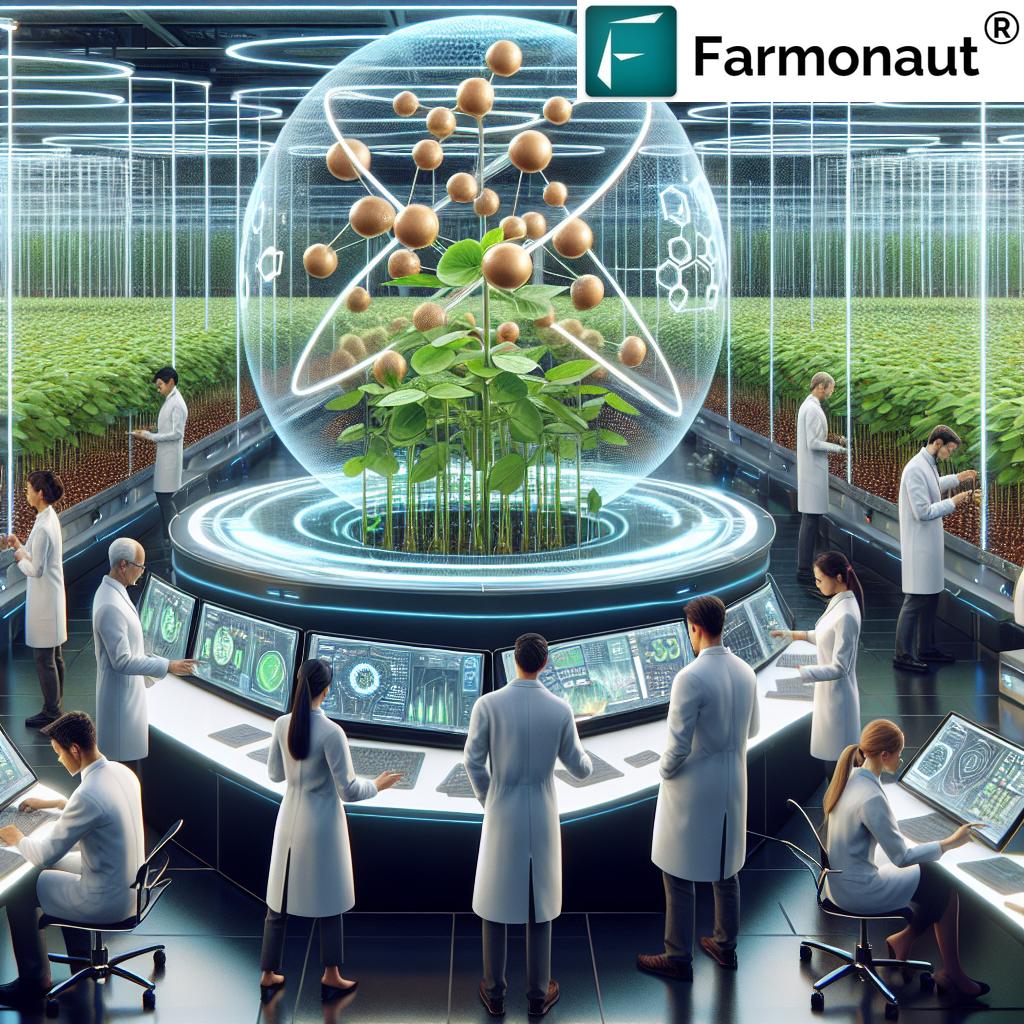
The Role of Data Analytics in Modern Agriculture
In the age of big data, agriculture is no exception to the transformative power of analytics. Companies like Farmonaut are at the forefront of this data revolution in farming:
- Satellite-Based Monitoring: Farmonaut’s advanced satellite imagery provides farmers with real-time insights into crop health, soil moisture levels, and other critical metrics.
- AI-Driven Recommendations: By analyzing vast amounts of data, AI systems can provide personalized recommendations for crop management, optimizing both yield and quality.
- Predictive Analytics: Forecasting weather patterns, pest outbreaks, and market trends helps farmers make proactive decisions.
- Blockchain for Traceability: Ensuring transparency in the food supply chain, from farm to consumer.
These data-driven approaches are not just improving efficiency; they’re enabling a more precise and sustainable form of agriculture that can adapt to changing environmental conditions and consumer demands.
Addressing Global Challenges: Food Security and Nutrition
The innovations in agtech and biotech are not just about improving farm productivity; they’re addressing some of the most pressing global challenges:
Enhancing Food Security
- Increased Crop Resilience: Developing varieties that can withstand climate change impacts like drought and extreme temperatures.
- Improved Storage and Distribution: Reducing post-harvest losses through better storage technologies and supply chain management.
- Diversification of Food Sources: Promoting a wider range of crops to ensure nutritional diversity and food system resilience.
Combating Malnutrition
- Micronutrient Enhancement: Developing crops with higher levels of essential vitamins and minerals.
- Protein Quality Improvement: Enhancing the amino acid profile of plant-based proteins to match human nutritional needs.
- Functional Foods: Creating crops with added health benefits, such as lowering cholesterol or improving gut health.
By addressing these challenges, the agricultural sector is not just feeding the world; it’s nourishing it, contributing to better health outcomes globally.
The Future of Agtech: Trends and Predictions
As we look to the future, several exciting trends are emerging in the agtech industry:
- Vertical Farming: Urban agriculture solutions that maximize space efficiency and reduce transportation needs.
- Gene Editing: More precise and targeted crop improvements using technologies like CRISPR.
- Robotics and Automation: Autonomous farming equipment that can operate 24/7, improving efficiency and reducing labor costs.
- AI-Powered Crop Breeding: Using machine learning to accelerate the development of new crop varieties with desired traits.
- Personalized Nutrition: Tailoring crop production to meet specific nutritional needs of different populations.
These advancements promise to further revolutionize agriculture, making it more efficient, sustainable, and responsive to global nutritional needs.
Comparing Traditional and Precision Agriculture Techniques
| Agricultural Aspect | Traditional Methods | Precision Agriculture Techniques |
|---|---|---|
| Fertilizer Application | Uniform application across fields | Variable rate application based on soil analysis and remote sensing data |
| Water Usage | Scheduled irrigation, often leading to overwatering | Precision irrigation based on real-time soil moisture data and crop needs |
| Pest Management | Broad-spectrum pesticide application | Targeted pest control using GPS-guided sprayers and integrated pest management |
| Crop Yield | Variable yields with inconsistent quality | Optimized yields with improved consistency and quality |
| Nutritional Value | Limited focus on nutritional enhancement | Enhanced nutritional profiles through precision breeding and biofortification |
| Environmental Impact | Higher risk of soil degradation and water pollution | Reduced environmental footprint through efficient resource use and conservation practices |
The Role of Farmonaut in Advancing Precision Agriculture
In the rapidly evolving landscape of agtech, Farmonaut stands out as a key player in advancing precision agriculture. By leveraging cutting-edge satellite technology and data analytics, Farmonaut is empowering farmers to make more informed decisions and optimize their crop management strategies.
- Real-Time Crop Monitoring: Farmonaut’s satellite-based monitoring provides farmers with up-to-date information on crop health, allowing for timely interventions.
- Data-Driven Decision Making: By analyzing satellite imagery and other data points, Farmonaut helps farmers make more precise decisions about irrigation, fertilization, and pest control.
- Resource Optimization: The platform’s insights enable farmers to use resources more efficiently, reducing waste and environmental impact.
- Yield Prediction: Advanced analytics help forecast crop yields, allowing for better planning and resource allocation.
Farmonaut’s technology is not just improving farm productivity; it’s contributing to the broader goals of sustainable agriculture and enhanced food quality. By providing farmers with powerful tools for precision agriculture, Farmonaut is playing a crucial role in shaping the future of farming.
Explore Farmonaut’s solutions:
Strategies for Reducing Food Waste
While enhancing crop nutrition and yield is crucial, equally important is the need to reduce food waste. Here are some innovative strategies being employed:
- Smart Packaging: Using materials that extend shelf life and indicate freshness.
- AI-Powered Inventory Management: Optimizing stock levels in stores to reduce oversupply and spoilage.
- Upcycling Food Byproducts: Converting food waste into valuable products like biofuels or animal feed.
- Precision Harvesting: Using sensors and AI to determine optimal harvest times, reducing post-harvest losses.
- Improved Cold Chain Management: Enhancing transportation and storage conditions to maintain food quality.
These strategies not only reduce waste but also contribute to a more sustainable and efficient food system, aligning with the broader goals of agtech innovation.
The Global Impact: From Asia to Africa and Beyond
The revolution in agtech and biotech is having far-reaching effects across the globe:
- Asia: Countries like India and China are rapidly adopting precision agriculture technologies to boost productivity in smallholder farms.
- Africa: Drought-resistant crop varieties and mobile-based farming apps are transforming agriculture in regions prone to climate variability.
- Middle East: Advanced greenhouse technologies and vertical farming are enabling agriculture in water-scarce environments.
- Europe: Strict regulations are driving innovations in sustainable and organic farming practices.
- Americas: Large-scale adoption of precision agriculture and biotech crops is setting new standards for productivity and sustainability.
This global adoption of agtech innovations is not only improving food security but also creating new opportunities for economic growth and environmental conservation.
Challenges and Ethical Considerations
While the advancements in agtech and biotech offer tremendous potential, they also raise important challenges and ethical considerations:
- Data Privacy and Security: As farming becomes more data-driven, protecting farmers’ information becomes crucial.
- Accessibility: Ensuring that small-scale farmers in developing countries can access and benefit from these technologies.
- GMO Concerns: Addressing public concerns about genetically modified organisms and their long-term impacts.
- Biodiversity Preservation: Balancing increased productivity with the need to maintain genetic diversity in crops.
- Socioeconomic Impacts: Considering the effects of technological advancements on rural employment and traditional farming practices.
Addressing these challenges will be crucial for the sustainable and equitable implementation of agtech innovations globally.
Conclusion: A New Era of Agriculture
As we’ve explored throughout this post, the convergence of precision agriculture technologies and biotech innovations is ushering in a new era of farming. This revolution is not just about producing more food; it’s about producing better, more nutritious food in a way that’s sustainable for our planet.
From the fields of Asia to the farms of Africa, and from the greenhouses of the Middle East to the vast plains of the Americas, these technologies are transforming how we grow, harvest, and distribute our food. Companies like Farmonaut are at the forefront of this change, providing farmers with the tools and insights they need to make more informed decisions and optimize their practices.
As we look to the future, the potential of agtech to address global challenges like food security, malnutrition, and climate change is immense. However, realizing this potential will require continued innovation, collaboration across sectors, and a commitment to ethical and sustainable practices.
The journey towards a more sustainable and nutritious food system is ongoing, and the innovations we’ve discussed here are just the beginning. As we continue to push the boundaries of what’s possible in agriculture, we move closer to a world where healthy, nutritious food is accessible to all, and where farming practices work in harmony with our environment.
FAQ Section
Q: What is precision agriculture?
A: Precision agriculture is a farming management concept that uses technology like GPS, sensors, and data analytics to optimize crop yields and reduce resource waste by applying precise amounts of water, fertilizers, and pesticides exactly where and when they’re needed.
Q: How does biotech contribute to crop nutrition?
A: Biotech contributes to crop nutrition through techniques like genetic modification and selective breeding to develop crops with enhanced nutritional profiles, such as higher vitamin content or improved protein quality.
Q: What are high-oleic soybeans?
A: High-oleic soybeans are varieties developed to produce oil with a higher percentage of monounsaturated (oleic) fatty acids, which are considered heart-healthy and offer improved stability for food processing.
Q: How does Farmonaut help farmers?
A: Farmonaut provides farmers with satellite-based farm management solutions, offering real-time insights into crop health, soil conditions, and weather patterns, enabling more informed decision-making and optimized resource use.
Q: What are some challenges in implementing agtech globally?
A: Key challenges include ensuring accessibility for small-scale farmers, addressing data privacy concerns, managing the socioeconomic impacts of technological adoption, and balancing increased productivity with environmental sustainability.







